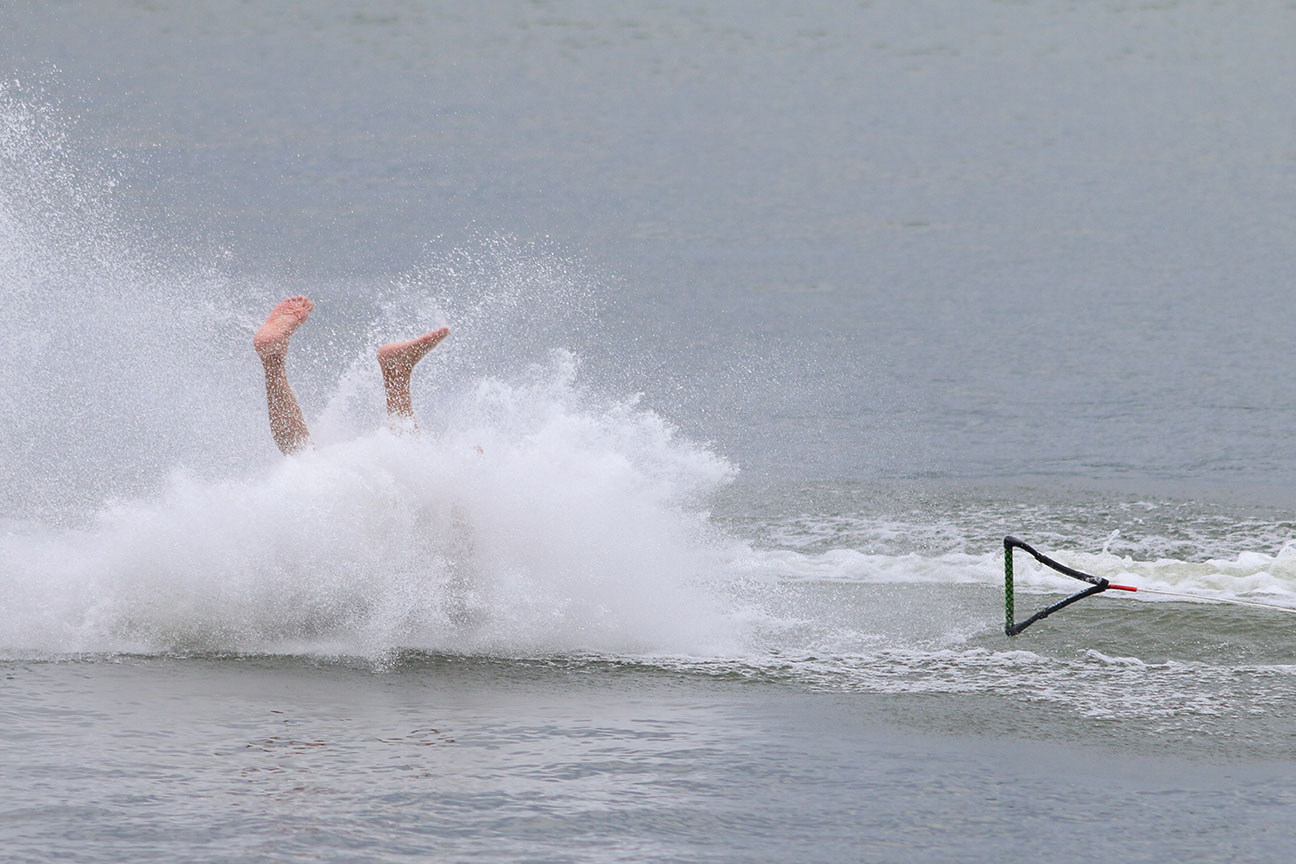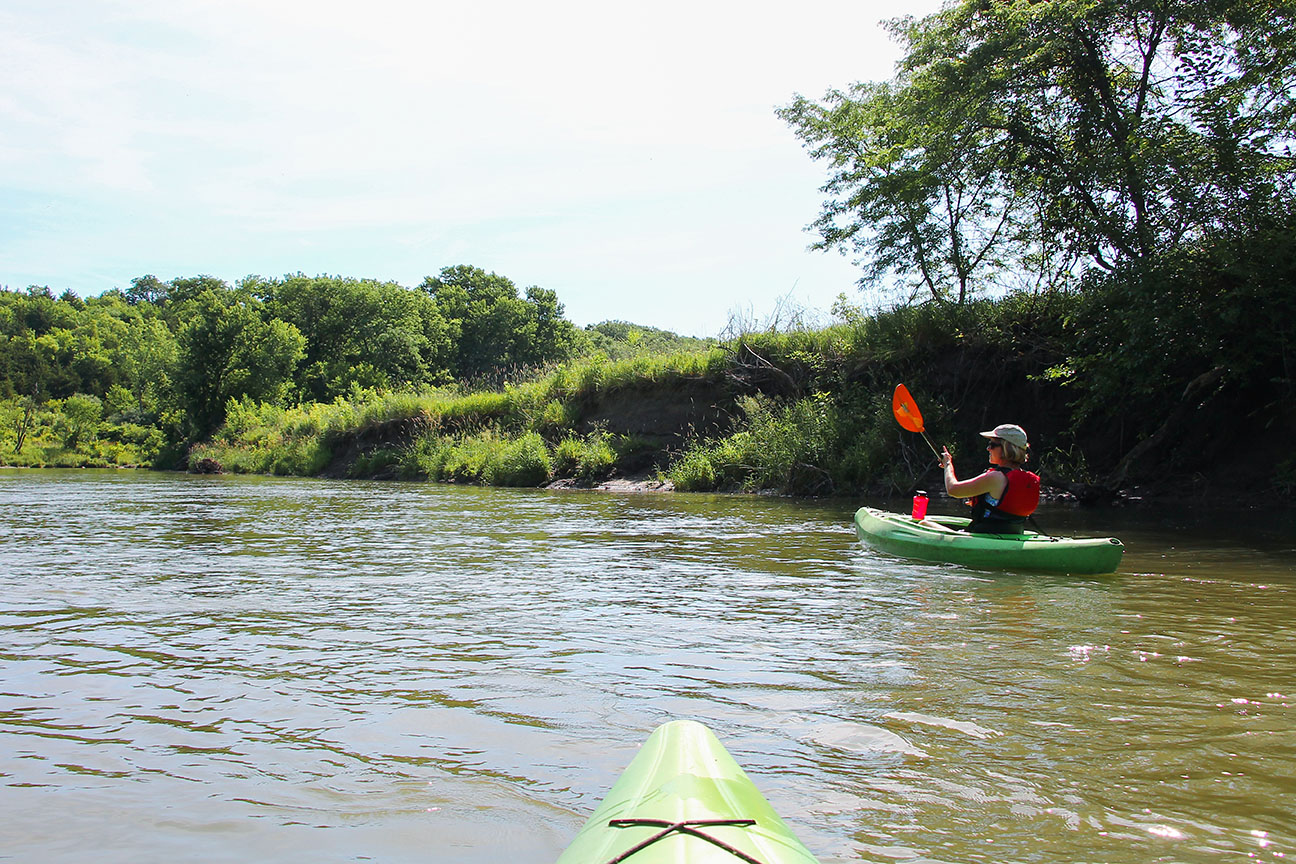2018
**By Emily Blobaum, senior in journalism and mass communication**
Just like the majority of people that look for internships, I immediately started applying to organizations like the Star Tribune, Dallas Morning News, San Francisco Chronicle and Seattle Times. The bigger the organization, the better. Or so I’d thought.
When I got rejected from all of the big news organizations, I didn’t let myself get too discouraged. Instead of spending my summer sulking, I decided to accept the only offer I got and do my required 499A internship for a newspaper located in a town that I had never been to and whose total population was less than the number of students I attended high school with.
Thank goodness I did, because the 93 days I spent working for the Herald Publishing Company were some of the best days of my life.
I worked as a photo intern for a handful of small-town newspapers in west-central Iowa that the Herald Publishing Company owned, many of them being weeklies. I was one of two photographers that worked for the entire company, so I always had events and people to take photos of. Assignments ranged from house fires, baseball games, town celebrations, outdoor concerts, bible camps, cross-state tractor rides, swim meets and elementary school field days.

I’d want anyone to experience the things I did over the summer, so here’s a short list of reasons why you should apply to work for community newspapers.
**1. You’ll likely have opportunities to do more than what’s listed on your job description.**
I was one of three people that worked on the editorial side of the Guthrie Center Times, which meant that instead of just being treated as someone who provides a pretty picture to a story, I was expected to help provide the content needed to fill the paper. I helped write and find stories within the community. The sheer amount of diversity in the assignments I ended up covering by the end of the summer strengthens my portfolio that much more.
**2. You’ll build relationships.**
You’re likely going to run into your sources at the gas station. This gives you a perfect opportunity for you to balance a professional and personal relationship with people. You’ll also master small talk.
**3. Community journalism is important.**
Community newspapers are the backbone of the journalism industry. The New York Times and the Washington Post certainly aren’t going to cover city council meetings or elections in a town of 1,500 people. If small-town newspapers don’t cover the happenings in the town, no one will.
**4. You’ll meet amazing people.**
My editors and coworkers truly cared about my experience as an intern. We’d go out for lunch and spend afternoons talking about how I can be successful.
I became good friends with the county sheriff after running into him every other day at events. He and I compared sunset photos, talked about happenings in the town. Because I took the time to get to know him, I was able to find out things about the county that I would have never known otherwise.
The people I interviewed for my public land project took me on “behind-the-scenes” tours of state and county parks and showed me the best spots to watch sunsets.

**5. You’ll have opportunities to work on projects that you bring to the table.**
I’m not going to lie, it takes a bit of creativity to stay busy for 40 hours a week when you work at a newspaper that only prints once a week. I didn’t want to sit around in a windowless office all day, so I pitched a project that looked at all of the public land areas in the county and highlighted the importance of spending time in them. I spent hours driving to state parks, kayaking down the Raccoon River and photographing some of the prettiest areas in the state. They ended up running my story and a dozen photos across three pages.
**6. You’ll get good at finding stories out of nowhere.**
I promise you, if you’re tasked with filling the paper every week with new, never-seen-before stories, you’re going to get real good at pulling ideas out of thin air. That grain elevator that’s being built down the street? There’s a story you may have never thought of. The construction being done on the west entrance of the hospital? You’ll definitely cover that. Notice that many of the American flags around town are soiled? You’ll produce 300-500 words on that. You’ll quickly learn that anything can be turned into a story.
**7. People appreciate the work you do.**
It’s hard being a journalist in today’s divisive world. I’ve had my fair share of being told that I’m promoting fake news and that my job is hopeless. But when you work in a small town, people begin to recognize your byline and your face. They’ll thank you for covering their events and taking their photos. And, if you’re lucky, you’ll see your work hanging on a church bulletin board or someone’s refrigerator.
If none of those reasons appeal to you, let me say this one last thing.
If anything, working in a small town makes you appreciate life so much more. The conversations you have with people are often long, even if it’s just with a woman at a gas station. You’re given the luxury of watching corn grow from a short sprout to a tall stalk while driving to work. Time is not wasted at stoplights, but rather meant to be used for waving at, and sometimes conversing with, people at four-way stops.
Even if they don’t offer internships, it doesn’t hurt to reach out to small-town newspapers to see if they could use an extra hand. I promise, you won’t regret it.
